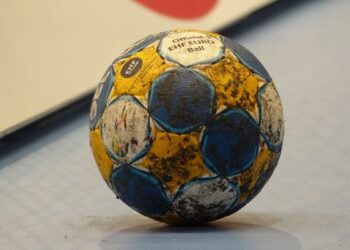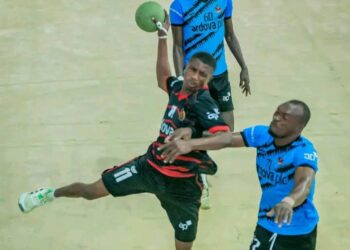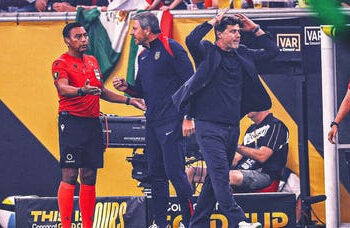Grand Nancy Métropole Handball, once an ambitious club with aspirations of establishing itself as a mainstay in the French handball elite, is now grappling with a dual crisis that threatens not only its place in the league system but its very existence. After several seasons of sporting disappointments and behind-the-scenes financial mismanagement, the club finds itself at a perilous crossroads.
The sporting crisis is starkly visible on the court. Recent seasons have seen Grand Nancy struggle to maintain competitiveness in France’s highly demanding Proligue, the country’s second-tier handball championship. Despite periodic flashes of promise, the team has failed to secure consistent results, hovering dangerously close to relegation zones and losing crucial matches against direct rivals. A club that once dreamed of climbing into the Lidl Starligue, France’s top handball league, now fights simply to avoid falling further down the national pyramid.
Players and coaches alike have struggled to keep morale high. Frequent injuries, an unstable roster, and an overreliance on a handful of aging veterans have left the squad vulnerable against younger, more dynamic opponents. Fans, once loyal and passionate, have grown frustrated with the lack of vision and direction. Home crowds have dwindled as sporting performances have dipped, adding to the sense of gloom surrounding the club.
Yet as troubling as the sporting results are, it is the financial situation that casts the darkest shadow over Grand Nancy’s future. Reports from local media suggest that the club’s finances are in disarray, with mounting debts, unpaid bills, and growing difficulties in securing new sponsors. The COVID-19 pandemic hit many sports clubs hard, but for Grand Nancy Métropole Handball, it exposed deeper structural weaknesses that had been festering for years.
Revenue streams that once seemed stable—ticket sales, municipal support, regional partnerships—have either shrunk or been called into question. The club’s dependence on public funding has become increasingly controversial in the current economic climate, where local authorities are forced to prioritize essential services over bailing out a struggling sports entity. Attempts to attract private investors have faltered amid concerns over the club’s governance and long-term sustainability.
Insiders point to years of poor financial planning and a failure to adapt to changing economic realities. Player wages were kept relatively high even as performance stagnated, draining resources that might have been better spent on youth development or community engagement. Efforts to modernize marketing and boost the club’s brand presence were too little, too late.
The consequences of this deepening crisis are already being felt off the court. Rumors swirl about potential administrative sanctions, including forced relegation or even liquidation if urgent solutions cannot be found. Players and staff face uncertain futures, with salary delays reported and agents quietly exploring options for their clients elsewhere. For younger players coming through the ranks, the dream of representing Grand Nancy on bigger stages now seems painfully remote.
Local supporters’ groups and former players have spoken out, calling for drastic changes to the club’s leadership structure. Many argue that only a fresh start—new management, transparent finances, and a clearer sporting vision—can save the club from its downward spiral. However, turning things around at this stage will not be easy. Any rescue plan will need strong backing from the community, local businesses, and perhaps most crucially, the city of Nancy itself.
The situation is particularly disheartening given the club’s historic role in promoting handball in the Grand Est region. For decades, Grand Nancy Métropole Handball has served as a beacon for aspiring young players and a point of local pride. Its youth academy has produced talents who have gone on to shine elsewhere in France and even on the international stage. Losing this institution, or seeing it relegated to irrelevance, would be a significant blow not just to the local sports scene but to the community spirit of the city.
Some glimmers of hope remain. Dedicated volunteers and die-hard fans continue to rally around the club, organizing fundraising events and pushing awareness campaigns. There is talk of a possible partnership with regional businesses or even a merger with another local club to pool resources and secure survival.
Ultimately, though, time is running out. If Grand Nancy Métropole Handball is to weather this storm, it will require urgent and decisive action. Hard decisions about spending cuts, debt restructuring, and realistic sporting ambitions must be made. Trust with supporters and local authorities must be rebuilt. And above all, the club must rediscover the fighting spirit that once made it a respected name in French handball.
Only then can Grand Nancy hope to overcome this deep sporting and financial crisis and look to a future where its blue and white colors still inspire pride a
cross Nancy and beyond.











